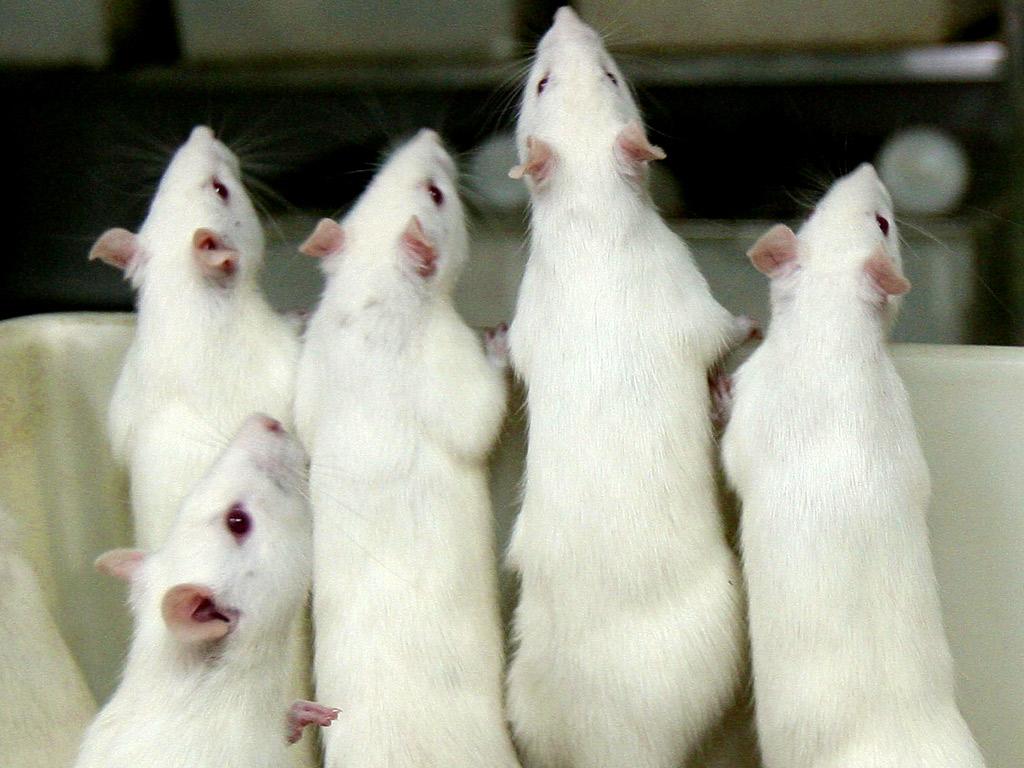'Single fault' in one gene can lead to alcohol addiction in laboratory mice
Humans with similar variations in the same gene could also have increased risk of the disease

A single fault in a gene involved with the “pleasure centre” of the brain can lead to alcohol addiction in laboratory mice, a study has found.
Scientists believe that similar variations in the same gene in people could significantly increase the risk of someone becoming an alcoholic when exposed to excessive drinking.
Previous studies have already established a link between genes and alcoholism but the latest research is the first to demonstrate a causal association between a specific genetic mutation and alcohol addiction, said Quentin Anstee, a consultant hepatologist at Newcastle University.
“There’s not previously been a demonstration of causality. That’s the key difference in our study with previous research,” Dr Anstee said.
Laboratory mice with a small change to a gene that is active in the brain, in particular the “pleasure centre” known as the nucleus accumbens, actively seek out and prefer water laced with 10 per cent alcohol, equivalent to the strength of wine.
Ordinary mice without the mutation shun alcohol and prefer pure water. The mutated mice, however, drink alcohol to excess and continue to crave it even when already intoxicated with its effects, Dr Anstee said.
“It’s amazing to think that a small change in the code for just one gene can have such profound effects on complex behaviours like alcohol consumption,” he said.
“They are clearly getting a significant pleasure effect from it. They don’t habituate and they will keep pressing a button for more alcohol even when inebriated. They don’t get fed up, they keep on going and going,” he added.
The mutation occurred in a protein receptor found in the synapses of brain cells, where one nerve communicates with another. This receptor binds to a neurotransmitter called GABA and the mutation causes the receptor to be “leaky” as if it is being constantly stimulated by the GABA messenger molecule.
The study, published in the journal Nature Communications, found that the effect was particularly pronounced in the nucleus accumbens, which controls pleasurable emotions and the feeling of reward in both mice and humans. The implication is that mice with the mutated gene got a bigger reward stimulus from the alcohol compared to ordinary mice – which may also be true in humans.
“The mutation of the [GABA receptor] is altering its structure and creating spontaneous electrical activity in the brain of this pleasure zone, the nucleus accumbens. As the electrical signal from these receptors increases, so does the desire to drink to such an extent that mice will actually work to get the alcohol, for much longer than we would have expected,” Dr Anstee said.
Roughly 50 per cent of a person’s risk of becoming an alcoholic is down to genes, so the GABA receptor proteins in humans may be a good target for potential new treatments, Dr Anstee said.
“This really is potentially a fantastic drug target, but we are some way off that yet. We’ve shown that this simple mutation causes alcohol dependency in mice. In humans it is likely to be more complicated,” he said.
The 10-year research project was carried out jointly by the universities of Newcastle, Sussex, London and Dundee, along with the Mammalian Genetics Unit at Harwell, and funded by the Medical Research Council and the Wellcome Trust.
Join our commenting forum
Join thought-provoking conversations, follow other Independent readers and see their replies
Comments